Further details can be found in the conference program here: https://www.conftool.com/educon/sessions.php.
The application of integration regarding the Riemann sums have its roots from the Limiting process (Idea of a limit as x approaches a certain value on a given interval) and the Differentiation from the 1st principle. That is done with reference to finding the gradient of a tangent of a curve by using secants so as to calculate the average gradient. This idea is a starting point of introducing the approximation of areas and limits, where thin rectangles are summed. Riemann sums is seen as important before introducing volumes of solids of revolution.
Topics:
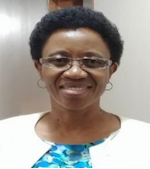
Dr Batseba Mofolo-Mbokane holds a PhD (Mathematics Education, 2011) in Mathematics and Applied Mathematics from University of Pretoria after graduating from the University of the Witwatersrand with BSc (1993, majoring in Mathematics and Industrial Psychology); HDipEd (1993) and Bed (1999) and MSc in Science and Mathematics (2003). She joined the University of the Witwatersrand in 2018 as a Lecturer in Mathematics Education, specialising in teacher training (teaching undergraduate Mathematics and PGCE methodology at universities as well as school and Engineering mathematics for the TVET colleges and the Technical Mathematics). She supervised Honours and Masters Students from schools and TVET sector up to completion. She is currently supervising Honours, Masters and PhD students in mathematics Education at the University of the Witwatersrand.
The aim of this workshop is to address the need to integrate sustainability education into engineering education and identify opportunities to infuse that into engineering education through authentic learning.
Audience: Engineering educators at any engineering field with more emphasis on electronics and electrical engineering
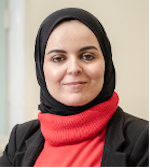
Dr Salma M.S. Al Arefi holds a BEng in Telecommunications and PhD in Computing and Electronic Systems from the University of Essex, U.K. 2013 and 2018, respectively. Salma is an award-winning teaching fellow in Electrical Power Systems at the School of Electronic and Electrical Engineering, University of Leeds. At her current post she is a Student Success Lead and Fellow of the Leeds Institute for Teaching Excellence as well as the Leeds Engagement Excellence Scheme. She is also directly involved with prompting equality, diversity, and inclusion and sustainability in higher education institutions.
According to a Kenyan study in 2019 on factors affecting student performance in Mathematics, 98% of teachers tied students’ attitude to their performance in the subject. Another study reported that Maths & Physics are hard to teach because the concepts are predominantly abstract.
We propose an engaging workshop session discussing how computational thinking can be utilized to improve STEM education in underserved regions where access to technology is limited. The workshop will address challenges faced by both teachers and students in the classroom and how complementary and unplugged activities infused into their curricula can be pivotal to improve students’ attitudes as well as educators’ delivery.
The workshop aims to:
Audience: Pre-University STEM educators and Researchers
Topics:
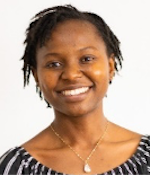
Ms Brenda is a Software Engineer and Educator. She has for 5 years led coding workshops for pre-university students in Kenya. As the Scratch Kiswahili Language Organizer she oversees translation of Scratch to Kiswahili to reach more Kiswahili-speaking students. She was recognized as Outstanding Educator-2019, at the African Women In Tech conference and also was a recipient of the IEEE TryEngineering STEM Grant Award in 2021.
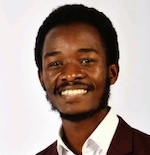
Mr. Lumumba is an Electrical & Telecommunication engineer by training and a STEM Education Consultant by passion with a demonstrated interest in improving STEM education delivery and learning outcomes in and outside the classroom. Lumumba is a past awardee of the IEEE TryEngineering STEM Grant 2021 which, with the help of industry and school partners, implemented a STEM Camp to over 100 pre-university teachers and students with an objective to increase STEM career uptake among the students.
This workshop introduces a practical approach to the inclusion of international students that is based on 'self-reflection'. With a range of pretested methods, participants have the opportunity to examine the ways in which they can be evidenced in students' results.
Working in small groups, participants look at the different ways that can be applied to guide international students toward a complete understanding and effective classroom participation. The workshop provides an opportunity to explore and reflect on the linguistic and cultural challenges and overlaps for foreigners within Esprit, School of Engineering.
The aim of this workshop is to support teachers in the design and delivery of comprehensive courses based on inclusive practices.
During the workshop, participants will:
Audience:
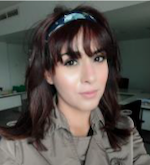
Dedicated, resourceful and goal-driven EFL instructor with a solid commitment to the social and academic growth and development of every student. Known as an innovative thinker with strong ESOL assessment, a Business English and Communication mentor with a comprehensive academic background and a professional syllabus designer aiming at modernizing english language learning among enginnering students. I strive to maximize students’ performance by implementing appropriate approaches through observations and analysis to gain understanding of emerging best pedagogical practices. Creative problem solver who excels at guiding students through complex academic plans by identifying goals and monitoring outcomes. Expertise includes soft skills workshops tailored for engineering students, a targeted Business English course designed for EMBA professionals seeking to obtain their BEC in addition to public speaking sessions for trainee teachers.
The workshop will give an overview of the requirements and processes for publishing engineering education papers in peer-reviewed journals. It will provide advice on how to develop research, for example work presented at Educational Conference such as EDUCON, for submission to peer-reviewed journal. It will explain the typically issues that are highlighted during the peer-review process and discuss what reviewers are typically looking for submissions. Taking the example of the IEEE Transactions on Education it will discuss the process of submitting papers and give hints and tips to ensure that the process is as smooth as possible.
The aim of this session is to give participants insight into the requirements of publishing educational research work in engineering education journals with a specific focus on the IEEE Transactions on Education. It will cover the areas of work and types of papers typically considered in scope for the journal and will give guidance on what is typically expected of papers by reviewers.
Audience: Engineering Education researchers looking to develop their conference papers to journal articles.
Topics:
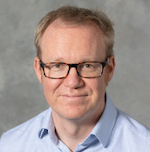
John E. Mitchell is Professor of Communications Systems Engineering in the UCL Department of Electronic and Electrical Engineering, Vice-Dean Education in the UCL Faculty of Engineering Sciences and Co-director of the UCL Centre for Engineering Education. Between 2012 and 2016 he was on secondment to the UCL Engineering Sciences Faculty office, where he led the introduction of the Integrated Engineering Programme. The team that led this major revision of the curriculum across the engineering faculty has recently been awarded the HEA Collaborative Award for Teaching Excellence (CATE). In 2009, he was awarded the UCL Provost's award for teaching and has published on curriculum development with engineering education. Professor Mitchell is a Chartered Engineer, Fellow of the Institution of Engineering and Technology (IET) a Senior Member of the Institute of Electrical and Electronics Engineers (IEEE), Member of the Board of Directors of the European Society for Engineering Education and Principal Fellow of the Higher Education Academy. He is currently Editor-in-Chief of the IEEE Transactions on Education.
Quality education in undergraduate engineering must include the development of systems thinking for design and problem-solving. Lecturers and instructors require practical and effective methods for fostering and assessing students’ systems thinking, but many institutions and curricula are still short of facilitating this goal.
In this workshop, participants will practice a framework for the development of systems thinking which is suitable for early-years undergraduate students, titled the System Architecture-Function-Outcome (SAFO) framework. This framework can be applied to almost any technological system and be used for both fostering and assessing students’ systems thinking. From September 2020 to present, the framework has been implemented successfully in first- and second-year undergraduate engineering classes. Key findings and examples from these implementations will be presented to workshop participants.
Work will be mostly carried out in small teams formed around discipline or systems of interest. Most of the workshop time will be active, including collaboration, presentation, discussion, and reflection.
Participants will leave the workshop with the following:
Audience: Faculty and instructors who teach undergraduate engineering students
Topics:
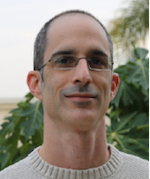
Rea is Lecturer and a Curriculum Designer with the New Engineering Education Transformation program for undergraduate students at the School of Engineering, Massachusetts Institute of Technology, Cambridge, MA, where he leads the incorporation of thinking skills into the program curriculum and teaches a first-year class on thinking skills and complex problem-solving. Rea’s research interests in STEM education include the fostering and assessment of higher order thinking skills involved in complex problem-solving, specifically systems thinking, creative thinking, and metacognition. His doctoral research received several awards, including the Zeff Fellowship for Excelling First-year Ph.D. Students and the Miriam and Aaron Gutwirth Fellowship for Excelling Ph.D. Students.
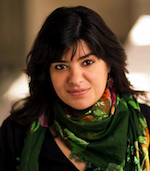
Bagiati holds a Diploma in Electrical and Computers Engineering and a master’s degree in Advanced Digital Communication Systems from Aristotle University in Thessaloniki, Greece, and a PhD in Engineering Education from Purdue University. She is currently a research scientist at the MIT - Open Learning. She is actively involved in the development and the assessment related to MIT’s national and international educational projects and collaborations, and conducts research at the PreK-12 and higher education levels, in the efficacy of innovative learning mechanisms and pedagogical approaches used in initiatives mentioned above. Dr. Bagiati’s research interests are in the areas of educational technologies, STEM curriculum development and teacher training, Design Based Learning. Lately Dr. Bagiati has started exploring how the latest findings from the Learning Sciences can be used to further guide and reform university curriculum and program design.
Quality education in undergraduate engineering should include the development of creative thinking for design and problem-solving. Instructors could use practical and effective methods for fostering and assessing students’ creative thinking, but many institutions and curricula are still short of providing this pedagogical need.
In this workshop, participants will practice a framework for the development of creative thinking through analogical reasoning, suitable for undergraduate students, titled Analogical Reasoning Matrix (ARM). This framework can be applied to almost any engineering design problem and be used for both fostering and assessing students’ analogical reasoning. Key findings and examples from previous implementations of this framework will be presented to workshop participants.
The workshop will involve both individual and team activities, including collaboration, presentation, and reflection.
Participants will leave the workshop with the following:
Audience: Faculty and instructors who teach undergraduate engineering students
Topics:

Deniz Marti is a Postdoctoral Fellow with Harvard SEAS Learning Incubator (LInc). She works to improve learning environments in STEM education for both faculty and students alike. She focuses on evidence-based research to explore expertise development, online pedagogy, and active learning techniques, specific to STEM education. Deniz is deeply interested in pedagogy, specifically in STEM learning environments. By drawing upon her extensive research experience in cognitive processes in engineering systems, she aims to understand more deeply how STEM students impart knowledge and skills most effectively, use them in solving complex problems, and eventually develop expertise. Deniz’s goal is to work on creating STEM learning and teaching platforms that are adaptable to an ever-changing world so that new generations can rapidly and efficiently address the needs of technology-driven venues.

Rea is Lecturer and a Curriculum Designer with the New Engineering Education Transformation program for undergraduate students at the School of Engineering, Massachusetts Institute of Technology, Cambridge, MA, where he leads the incorporation of thinking skills into the program curriculum and teaches a first-year class on thinking skills and complex problem-solving. Rea’s research interests in STEM education include the fostering and assessment of higher order thinking skills involved in complex problem-solving, specifically systems thinking, creative thinking, and metacognition. His doctoral research received several awards, including the Zeff Fellowship for Excelling First-year Ph.D. Students and the Miriam and Aaron Gutwirth Fellowship for Excelling Ph.D. Students.
The electrification megatrend is driving the replacement of less efficient technologies and helping us achieve a more sustainable future. With the switch to power electronics, batteries and electric machines of all sizes, it has become commonplace to deploy more and more embedded devices to control them.
At the same time, with more access to data and computing power than ever before, machine learning is providing us with new ways to develop algorithms. When combined with ever more electronic and more programmable machines, we are facing the opportunity and the challenge to build increasingly autonomous systems.
How can engineers architect such complex systems, iterate quickly and validate their designs along the way? For many companies across industries, from renewable energies to mechatronics or transportation, the answer is Model-Based Design. In this presentation, we will look at how they are leveraging MATLAB® and domain-specific tools, with Simulink® as an integration platform to model multi-domain systems, validate their behavior and deploy code for them.
With such convergence of mechanics, electronics, and software, how must the skills of future engineers evolve? We will share examples of how leading universities around the world are adapting their curricula to include more active learning with professional tools to help their students gain interdisciplinary skills and systems thinking.
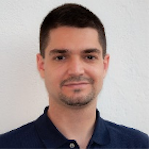
Carlos Sanchis holds a MSc in Industrial Engineering (with majors in Electronics and Controls) from the Technical University of Valencia (UPV) and an MPM in Project Management from the La Salle Business Engineering School. For 13 years he has been applying MATLAB, Simulink and other technologies to Data Analytics, Electronics R& D, Power Grid Modelling and Programming at different companies. Today he is a senior member of the MathWorks Academic Group, a team of engineers consulting with the academic community and collaborating with leading institutions on innovative teaching and research projects with MATLAB and Simulink.
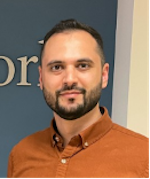
Mohammad Abuzayyad holds a MSc in Mechatronics Engineering from the American University of Sharjah. He has an interest in Control Systems and Robotics. For the past 9 years, he has been working with educational institutions in the MENA region to help them adopt technology tools. He has experience in Data analysis, Artificial Intelligence. Currently he is working with MathWorks academic team to provide the necessary support for universities in the MENA region to use MATLAB and Simulink in their teaching and research activities.
This workshop includes the following topics:

Mahmoud works with Naseej since 2012, has over 13 years' experience in the Libraries environment, information technology and services industry. Mahmoud has Master’s degree in Library & information management from the Lebanese University, also a PhD Candidate in Information Sciences. Mahmoud has gained various experiences in providing high quality trainings on different subjects including IEEE platform and technology.
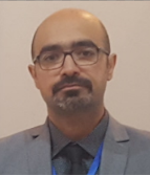
Salim (IFGICT Certified) is a computer science graduate of American University of Beirut, with an experience of more than 20 years in the field of Education, research and libraries across the Arab countries. Employee at Naseej Beirut for 4 years and Naseej North Africa for the past 11+ years, helping implementing Education and research projects in North Africa. Experienced in providing high quality training on different subjects including IEEE platform and technology.
This workshop includes the following topics:
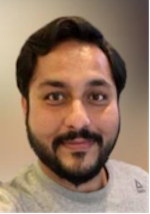
Ranbir works with IEEE customers in India, Middle East (Asia), Africa, Bangladesh since 2017. Ranbir has over 13 years' experience in the information industry, holding positions at Dell International, HCL Learning and Educomp Solutions Ltd. Prior to joining IEEE, Ranbir was senior manager of client engagement at Global Information Systems Technology and lead a team of professionals who trained end users on various publisher products and a team who provided customer technical support. Ranbir has degree in computers from Punjab University Chandigarh and Masters from Amity Noida. Ranbir is also certified professional on Microsoft and Cisco Platforms.
By the end of the tutorial, participants should be able to:
Audience: Any engineering educators with responsibility for practical and labs teaching. This could be for a single module or across an entire programme. Both undergraduate and postgraduate educators are welcome.
Topics:
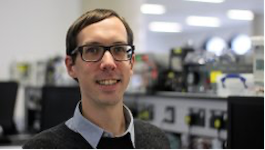
As STEM education migrates to a more blended delivery format, the use of digital assessment tools is gaining significant attention. The purpose of this tutorial is to demonstrate the application of Numbas, an open-source online assessment system, in the context of formative and summative assessment, including laboratory exercises and final exams.As STEM education migrates to a more blended delivery format, the use of digital assessment tools is gaining significant attention. The purpose of this tutorial is to demonstrate the application of Numbas, an open-source online assessment system, in the context of formative and summative assessment, including laboratory exercises and final exams.
The objective of this session is to share existing practice and to raise awareness of the Numbas system for use in an engineering education setting.
Website: https://www.numbas.org.uk/
Attendees will:
Topics:
Audience:
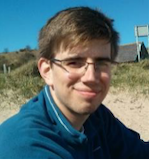
Christian is a member of the e-learning unit in Newcastle University’s School of Mathematics, Statistics and Physics. He is the lead developer of Numbas
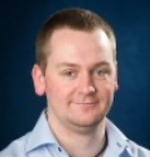
Simon is a member of academic staff in the Electrical Power research group of the School of Engineering at Newcastle University (UK). For over ten years he has worked in the field of Electrical Power on topics such as characterisation of electrochemical energy storage systems and advanced electrical integration technologies for integrated drives and integrated power converter/storage applications. As a Lecturer of Electrical Power he is currently conducting and managing research projects focussing on novel power converters, integrated drives and advanced battery production, management and recycling.
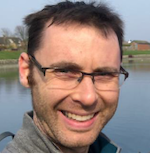
Chris is a lecturer and Deputy Director of Education in the School of Mathematics, Statistics & Physics at Newcastle University. Leading the School's E-Learning Unit, Chris works with academics across the University to embed Numbas in everything from pre-University material to final exams.
This tutorial is a master class to teach how to compose models in CPN Tools for performance evaluation of networks, grids, and clouds, especially in their model driven design preferably in real-time applications.
A network should be correct and efficient. While the correctness of networks functioning is established through the verification of networking protocols, the network efficiency is estimated in the process of performance evaluation using either analytical methods or simulation, or both. A classical Petri net is applied for verification of networking protocols. A colored Petri net, that represents a union of a Petri net graph and a functional programming language, is a convenient and flexible tool for simulating networks, grids, and clouds. Using special measurement components of colored Petri nets allows us to obtain performance and QoS characteristics directly in the process of simulation. A series of colored Petri net models has been developed for simulating Ethernet, IP, MPLS, Bluetooth, and PBB networks, square and multidimensional (hypercube and hypertorus) grids. Performance evaluation is a necessary stage of a network design for real-time applications. Recently multidimensional torus is applied as the topology of communication systems of supercomputers and clusters, for instance the most powerful supercomputer Fugaku of Fujitsu uses Tofu Interconnect D having topology of 6D torus.
We will focus on the technique for modeling networks, grids, and clouds by colored Petri nets in the environment of modeling system CPN Tools (http://cpntools.org). Manifold publications and real life projects acknowledge such advantages of modeling by colored Petri nets as: vivid graphical form of representation, high descriptive power, flexibility, and convenience of use. Firstly, we will create a model of a given network, using early created components for networks, debug it and observe the process of generating and delivering packets, check corresponding routing/switching tables and algorithms of their creation. Random distribution functions are widely applied for modeling the network traffic and packets processing within network and computing nodes. Secondly, we will supply the model with specially-designed measuring components to estimate the network performance and QoS directly in the process of simulation.
Topics:
Audience: Researchers, students, and PhD students who would like to master technique of modeling by Petri nets and colored Petri nets are encouraged to attend; some background in graphs, networking technology, and programming languages is appreciated. It is recommended that each participant will follow the thread of tutorial installing modeling system, drawing, and downloading models on his/her personal laptop attached to Internet.
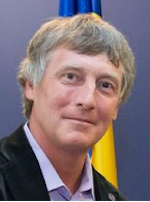
Dmitry A. Zaitsev received the Eng. degree in Applied Mathematics from Donetsk Polytechnic Institute, Donetsk, Ukraine, in 1986, the Ph.D. degree in Automated Control from the Kiev Institute of Cybernetics, Kiev, Ukraine, in 1991, and the Dr.Sc. degree in Telecommunications from the Odessa National Academy of Telecommunications, Odessa, Ukraine, in 2006. He developed the analysis of infinite Petri nets with regular structure, the decomposition of Petri nets in clans, generalized neighborhood for cellular automata, and the method of synthesis of fuzzy logic function given by tables. He developed Opera-Topaz software for manufacture operative planning and control; a new stack of networking protocols E6 and its implementation within Linux kernel; Petri net analysis software Deborah, Adriana, and ParAd; models of TCP, BGP, IOTP protocols, Ethernet, IP, MPLS, PBB, and Bluetooth networks. His current research interests include Petri net theory and its application in networking, computing and automated manufacture. Recently he started working in the area of exascale computing applying his theory of clans to speed-up solving sparse linear systems on parallel and distributed architectures. He was a co-director of joint projects with China and Austria. Recently he has been a visiting professor to Technical University of Dortmund, Germany on DAAD scholarship, to University of Tennessee Knoxville, USA on Fulbright scholarship and to Eindhoven University of Technology, Netherlands. He published a monograph, 3 book chapters and more than a hundred of papers including issues listed in JCR. He is a senior member of ACM and IEEE. Additional information including papers, software, models, video-lectures in put on personal website via http://daze.ho.ua
| 25 Oct 2021 | Abstract submission, Proposals for Special Sessions, Panels and Workshops |
| 05 Nov 2021 | Notification of Abstracts and Special Sessions acceptance |
| 12 Dec 2021 | EXTENDED - Complete paper upload for accepted abstracts (main conference) - Submission of complete papers for Special Sessions - Submission of Work-in-Progress and Student Poster Papers - Proposals for Panels and Workshops |
| 15 Jan 2022 | Notification of Acceptance |
| 10 Feb 2022 | Author registration deadline Camera-ready submission for all submission types |
| 28 Mar 2022 | Pre-conference Workshops |
| 29 Mar 2022 | Conference Opening |
| 31 Mar 2022 | Conference Closing |